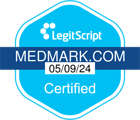
How can it be possible that you will walk into an opiate drug addiction treatment program and actually succeed at recovery? The answer is that if you choose a licensed treatment program with all the proper certifications staffed by counselors who are trained in substance abuse treatment, then you will learn how to get sober and stay sober. They will succeed at teaching you how to manage your recovery, because that’s what they do.
It’s difficult to believe in your own ability to achieve recovery, especially if Life has tossed some hard knocks your way and you don’t have many people who care about whether or not you stay sober. But you can achieve recovery as long as you want it more than anything. Are you tired of the desperate search for pain pills or heroin, of waking up washed out, sick, and anxious, and the feeling that you are fighting a losing battle? Don’t give up, because there are actual concepts for recovery management of your opiate drug addiction.
You know how a child sorts through puzzle pieces one by one in order to create a beautiful puzzle picture? In much the same way, you can pick up the various tools that your counselor at the opiate drug addiction treatment program will show you and use them, one at a time, to assemble a picture of yourself—a new self who voluntarily lives a clean life and does their part to be a contented, law-abiding citizen within the community.
Don’t think that sobriety is a dream that sounds lofty or too far out of your reach—the first time that you give the lead at your 12-step meeting, you’ll be living that dream. All you have to do is pick up the pieces of recovery that the counselor shows you. It’s easier than you think, especially if you choose a treatment option using methadone or Suboxone to assist you in the process, because you won’t have to struggle with the cravings or withdrawal symptoms of opiate drug addiction.
Social Supports for Opiate Drug Addiction Recovery
Emotional Support. Are you squirming inwardly when your new counselor at the methadone treatment program asks you all kinds of personal questions during the assessment process? The questions go on and on, about all aspects of your life. But exploring your emotional experience is the beginning of your education. It helps you look at the things in your life that haven’t gone so well. By examining the things that you like and the things that you want to change, you develop motivation to move forward in treatment.
Counselors understand that not everybody can answer each question truthfully or completely during the assessment process. So if there’s some piece of information that you left out initially and you think it will help with your treatment for opiate drug addiction, then speak up and let them know. You just have to say, “I’d like to tell you something that I left out before.” It’s that easy, and it can make a big difference in getting to the next step.
We mentioned education, and that also refers to everything about opiate drug addiction that you were afraid to ask about—and the things you just thought you knew. Substance abuse education is important for both you and your closest loved ones.
Meeting people who have shared the same experiences as you also creates a safety net of supportive peers. That’s why your doctor and counselor nag you to go to 12-step meetings or group counseling sessions when they’re available. Those are the places where you’ll have moments of awakening, where the light bulb goes on and you realize oh, that’s what they meant! Instead of just ignoring the recommendation to attend, look at meetings as another of the puzzle pieces you’ll need to finish your recovery from opiate drug addiction. You many need to try different meeting until you find one that feels like a better fit for you.
Informational Support. Either your counselor or a case manager at the methadone treatment program will offer you what is called case management support. That’s how you will find out about if and how you can apply for a medical card—and it may be the very first thing that an opiate drug addiction treatment program will teach you. If you have private insurance, the case manager can help you find out what, if anything, your insurance will reimburse you for the cost of your treatment. Each state is different, some are more supportive of addiction treatment than others.
Informational support also includes referral to a primary care provider, a doctor who can help you with medical problems you’re having. You would be surprised to learn how many people suffering from opiate drug addiction simply fail to look after their health, and life on the street certainly doesn’t do them any good. If you need a dentist or an eye doctor, the case manager can find you one. If you want to learn how you can get money to take some classes at the local college or even if you need your GED, the case manager can provide the resources you need.
Instrumental Support. This kind of support often connects to the informational support that you’ll be offered. What if the case manager tells you where to find the Job and Family Services office, but the application simple boggles the mind? The case manager can help you fill it out. If you want college aid, the case manager can help you maneuver through the FAFSA website. This is where you discover how to apply for money to pay for the child care you need in order to get a job or even just to attend counseling at the opiate drug addiction treatment program.
Affiliation Support. Affiliation support refers to the nitty-gritty of opiate drug addiction treatment: The ability to establish the social connections with other people who are working on recovery just like you. Interacting with people who have some recovery time under their belts is the final missing piece of the puzzle that will help you develop a complete picture of your recovery.
Some of those resources begin with your first 12-step meeting, when you watch everybody else stand up and say Hi, I’m Albert, and I’m an addict. They begin when you admit your own drug addiction for the very first time, even if it’s mumbled under your breath at one of those meetings.
You’ll learn how to approach someone at a meeting—and won’t it be a surprise to find someone who interests you at a place like that! But you will find someone whom you like, and you’ll learn how to go up to them and tell them you’re looking for a sponsor.
Putting Together the Pieces of the Puzzle
As you work on your opiate drug addiction recovery, you’ll suddenly realize that you’re holding the pieces of the puzzle in your hand—put in your hands by the counselor, by the case manager, by the 12-step group sponsor, by the doctor—and you’ll figure out a way to put them together.
You’ll discover that you have learned the good ways to achieve recovery and the negative ways that can contribute to relapse. Some people may be surprised to recognize how intensely they desire to remain sober. And then the magic will happen: You’ll be attending your umpteenth-hundredth 12-step meeting, and someone will come up to you and say they are looking for a sponsor. It will be your turn to pass on the pieces of the puzzle.



